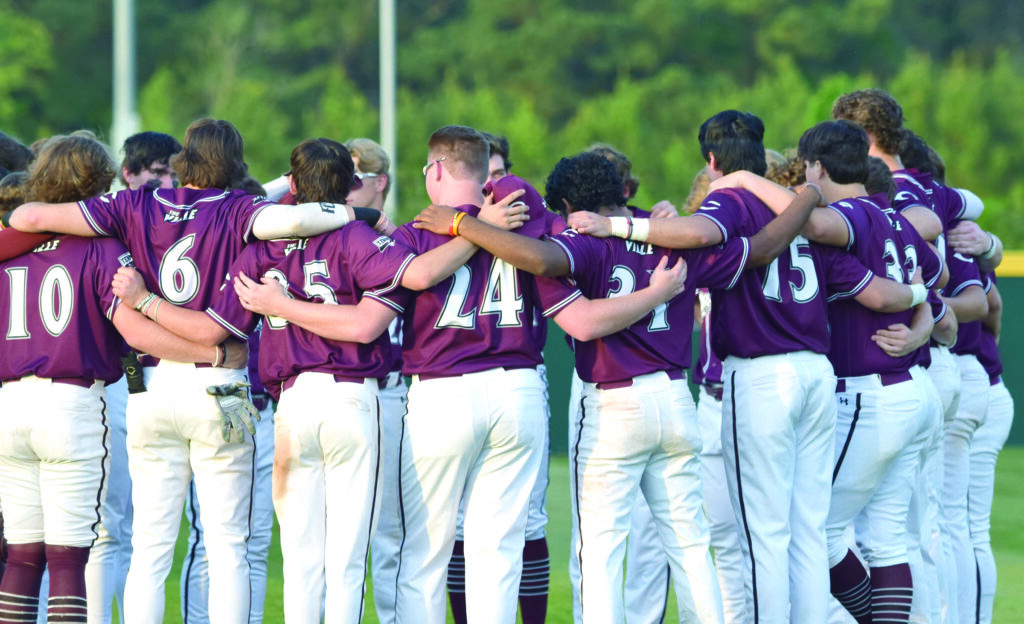By Graham Sweeney & Randa Lipman
Collierville’s Dianne Barrett began suffering from kidney problems as a teenager and after several medical opinions, unsuccessful treatments and even dialysis, she was eventually considered eligible for a transplant, which would come from a very familiar donor.
A drive-through celebration was held on May 8 on Seven Pines Road in Collierville in honor of the 30th anniversary of Barrett’s successful kidney transplant. Her sister and living donor, Geneva Cochran, was also on hand to celebrate.
Barrett was 16 years old when she went on a church trip to Six Flags. When she arrived her feet were swollen. She thought it was from sitting during the drive.
After elevating her feet, the swelling went down and Barrett didn’t think anything more about the issue.
Several years later, while attending the University of Memphis, she took a road trip with some friends and noticed that her feet were swollen again. She had also gained weight.
Her mother recommended that she go to a podiatrist, where she was told that the swelling had nothing to do with her feet, it was a kidney problem.
He advised her to go see an internal medicine doctor. After doing so, Barrett was told that her kidneys were failing and that she’d need a transplant in three-or-four years.
“I was young and carefree and that was hard to hear,” she said. “No one in my family had ever had kidney trouble.”
Barrett began seeing numerous doctors. However, as a college-aged student, she was no longer old enough to be under her parents’ insurance.
“I found myself uninsured,” she said. “Doctors pumped me full of Lasix and I got up to 300 pounds and spent two years in a wheelchair.”
She eventually sought an opinion from Dr. Al Swamy at Saint Francis Hospital.
“He saved my life,” he recalled. “He said that I had end-stage renal disease and needed to be on dialysis, which I immediately started three days a week.”
After several months, Barrett was told that she was a candidate for home dialysis, or peritoneal.
“It was great,” she said.
By the early 1990s, Barrett had shed 100 pounds and eliminated much of the fluid build up associated with kidney disease. She was now eligible for a transplant.
“I was ready for a transplant,” she said. “I started crying.”
All six of her siblings reached out to give Barrett a new kidney.
“We all went to the transplant center to get tested,” Barrett said. “The staff there said they had never had that many people get tested to give one person a kidney.”
Cochran was deemed to be the best match.
“I remember we all went to get tested and Dianne and I were a perfect match,” Cochran said. “The doctors said we were exactly the same except she was tall (5-foot-11) and I was short (4-foot-11).”
The surgery was set for April of 1991.
“I was excited and my emotions were all over the place,” she recalled. “I was 26, scared, yet trusting.”
While Barrett nervously paced when she arrived for the procedure, she said that her sister was “so calm.”
“At the time I wasn’t afraid,” Cochran said. “I was ready as long as my husband and kids were good with it and they were.”
While waiting for the transplant procedure, a woman asked Barrett, “Do you believe in God?”
“My answer was ‘yes,’ as I had been brought up in a Christian home,” she said. “After that, I was no longer nervous, and I went upstairs and right to sleep. I slept until they came to get us for surgery the next morning. After surgery I came back to the room and found my family and friends – my whole entourage was with us in the hospital.”
Dr. Santiago Vera and Dr. A. Osama Gaber performed the surgeries at was then UT Bowld. Following surgery, Dr. Vera reported that the kidney was working well.
“My Mama was so relieved as she had been pacing back and forth,” Barrett said. “She had never had two children under the knife at one time. Doctors told me a kidney from a living related donor would probably last 10-or-13 years.
“After going home it was remarkable,” she continued. “It’s like being given a second chance at life. No more dialysis, no more wheelchair. It’s a feeling of gratefulness. I tell Geneva all the time how grateful I am for her. I always want to go the extra mile for her. She says you don’t owe me anything but it seems like I do. I know I owe it first and foremost to God. I take my medicine on time, try not to eat salty foods, and not gain weight. When I got her kidney I told her I’d do everything I could to preserve it. I told her I wouldn’t drink any alcohol and I haven’t.
“Here I am 30 years later and I’ve experienced no rejection at all,” she concluded. “In the last 30 years, I’ve enjoyed a better quality of life and I’m not dependent on a wheelchair due to fluid overload. I’ve been able to spend more time with my family and friends. I don’t have to worry about rushing home to get hooked up to the machine like I was when doing peritoneal dialysis. I enjoy myself and not worry about the disease itself. I don’t even think about it anymore.”
Cochran added, “I would definitely do it again. You give them a gift of life that goes on and on. It’s made us so much closer. My life has gone on like nothing ever happened. I never even think about it. I do every activity and it hasn’t kept me from anything. I tell people all the time: Be a donor if you can — either as a living donor or register to be one after death. It could really help save or extend someone’s life. Help somebody else. That’s what life is about.”
For more than 40 years, the Mid-South Transplant Foundation has helped to facilitate the organ and tissue donation process between donor families and transplant recipients and promotes awareness of donation through public and professional education while ensuring donors’ end-of-life wishes are fulfilled.
Everyone is encouraged to register to become organ and tissue donors so more lives can be saved. There are more than 108,000 Americans on the national waiting list and more than 4,000 in the Mid-South. One organ and tissue donor can save up to 8 lives, restore sight to two people, enhance the lives of more than 75 people. For more information, visit www.MidSouthTransplant.org
‘A second chance at life’ – Local survivor celebrates 30th anniversary of kidney transplant
- by Graham Sweeney
- May 12th, 2021

The Collierville Herald-Independent strives every day to bring the people of Collierville news that impacts their lives, allowing them to make more informed decisions on a daily basis.
Contact us: [email protected]
Editor's Pick
April 24th, 2024
April 24th, 2024
April 24th, 2024
© Copyright 2024


